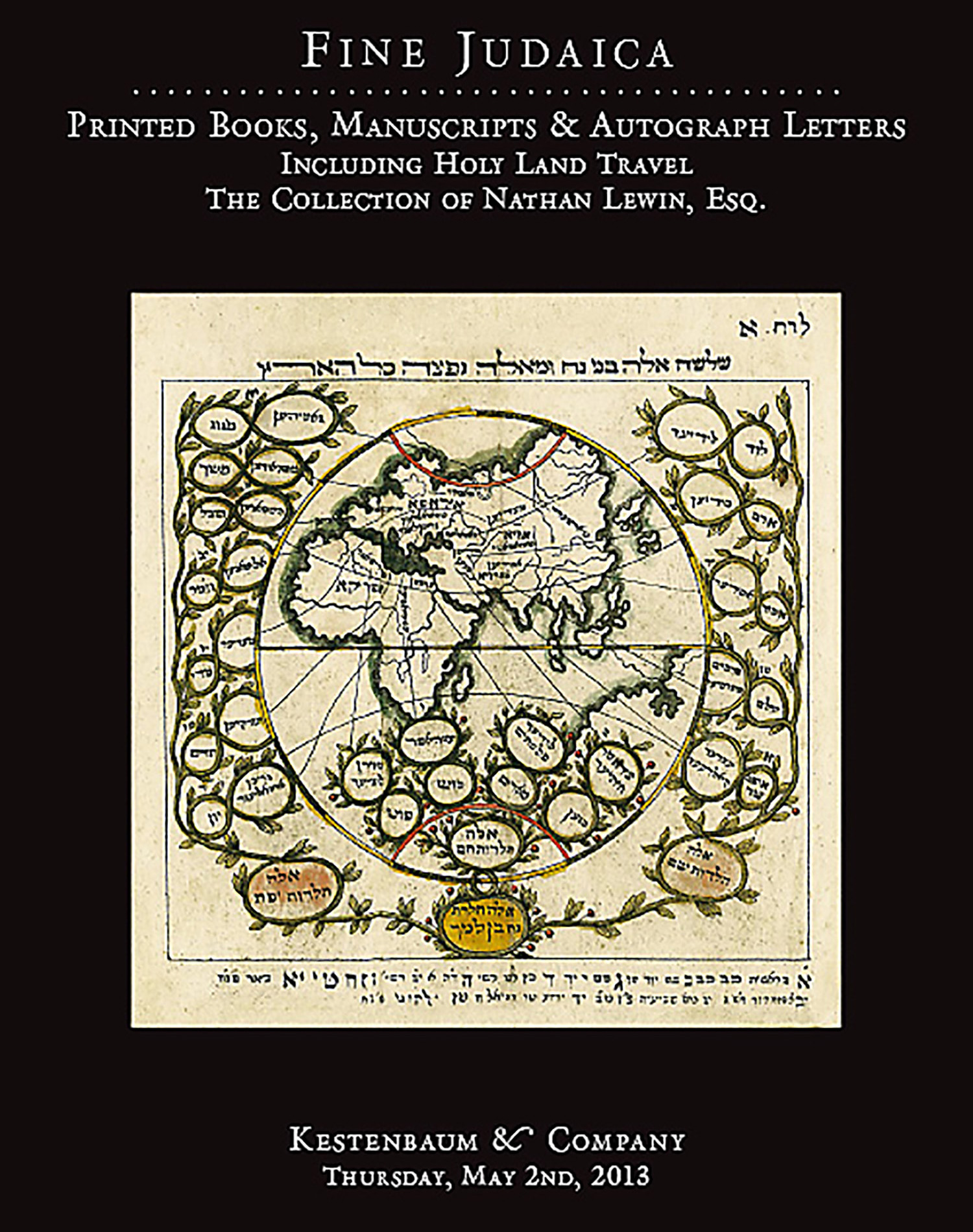Levy, Uriah Phillips. Manual of Internal Rules and Regulations for Men-of-War.

AUCTION 58 |
Thursday, May 02nd,
2013 at 1:00
Fine Judaica: Printed Books, Manuscripts and Autograph Letters
Lot 20
(AMERICAN JUDAICA).
Levy, Uriah Phillips. Manual of Internal Rules and Regulations for Men-of-War.
New York: D. Van Nostrand 1862
Est: $1,200 - $1,800
PRICE REALIZED $1,000
Uriah Phillips Levy (1792-1862) was the first Jewish Commodore in the U.S. Navy and a major philanthropist to Jewish causes in America. Born into a Jewish family from Philadelphia, his grandfather, Jonas Phillips, originally moved to the United States from Germany in 1756 and fought against the British during the American Revolution. At the age of ten, Uriah Levy left home to serve as a cabin boy on a trading ship. Levy returned home to celebrate his bar mitzvah with his family, though the following year he quickly returned to the sea. Eventually joining the U.S. Navy, where he became a sailing master, Levy fought in the Barbary Wars and was later assigned to the U.S.S. Argus during the War of 1812 against the British. Levy continued to serve in the Navy, rising to the ranks of lieutenant (1817), master commandant (1837), and captain (1844).
After witnessing flogging in the Navy firsthand, Levy joined those who opposed corporal punishment and in 1838, while commanding the U.S.S. Vandalia, developed his own system of discipline, substituting mild reforms for physical discipline. Because of his refusal to inflict corporal punishment on a young seaman, he was court-martialed and dismissed from the service, however President Tyler overturned the decision.
A smart investor in New York City real estate, Levy became a rich man late in his Naval career and used his wealth as a generous philanthropist, many times donating to Jewish-American endeavors. He served as the first president of the Washington Hebrew Congregation in Washington, DC and in 1854 he sponsored the new Jewish seminary of the Bnai Jeshurun Educational Institute in New York.
An ardent admirer of Thomas Jefferson, in 1836 Levy purchased Monticello, the late President’s estate, and publicly announced that he intended to restore the property to its original condition and open it for visitation. The house and grounds remained in the Levy family until the estate was sold to the Thomas Jefferson Memorial Foundation in 1923.
(See The National Museum of American Jewish Military History. Washington DC: An American, A Sailor and a Jew: The Life and Career of Commodore Uriah Phillips Levy, USN).
